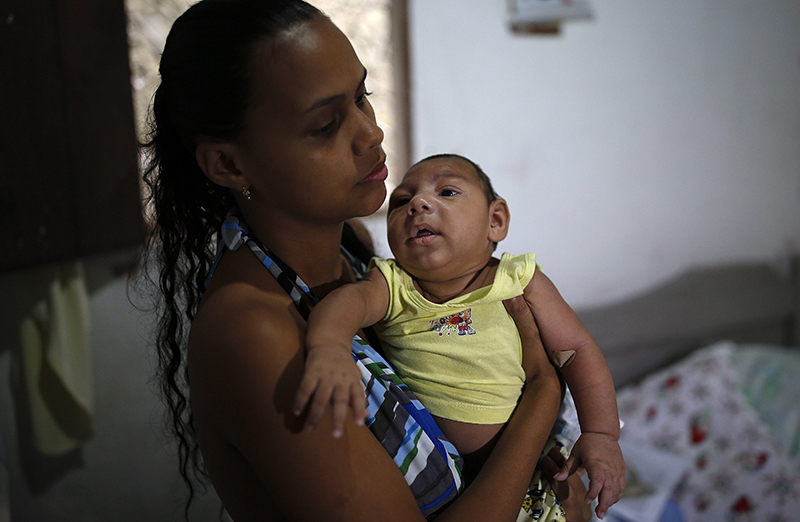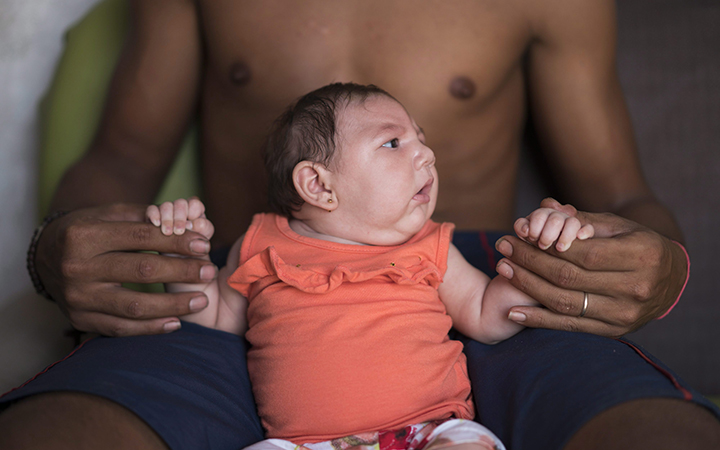Public health warnings linked to the Zika virus remain in place this fall as many Canadians start booking their winter getaways to tropical zones where the virus is still present.

But a recent study conducted on behalf of the federal government reveals that while travellers are taking more steps to protect themselves, many people still don’t know how to recognize the symptoms of Zika, understand how it spreads, or know why it’s so dangerous for pregnant women and unborn babies.
READ MORE: 1 in 10 U.S. moms infected with Zika have babies with birth defects
A mutated version of the decades-old Zika virus has been causing severe birth defects in countries like Brazil since 2015, and scientists are still trying to understand how it became so dangerous so fast.
As of early September, there had been 523 travel-related cases of the virus reported in Canada and four sexually transmitted cases, including 37 pregnant women.
In its most recent public health notice, issued on Sept. 13, Health Canada advised all travellers heading to countries where Zika has been identified to continue to take precautions — especially if they are pregnant or planning to get pregnant.
These hot spots include, but are not limited to, popular winter getaway destinations like Cuba, the Dominican Republic, Mexico, St. Lucia, Brazil, Costa Rica, and several other South/Central American and Caribbean nations.

Get weekly health news
Advisories in U.S. states like Texas and Florida were lifted over the summer, however, meaning those areas are now considered low risk.
Major knowledge gaps
The government survey, conducted at the end of last winter’s vacation season, revealed that overall, respondents were very aware of Zika’s existence (91 per cent of the 2,000-person sample had heard of it).
Surprisingly, however, people of childbearing age were less aware of Zika than their older counterparts. Up to 25 per cent of respondents under age 45 said they had never heard of the virus.
WATCH: Here’s how hard Zika virus hit Canadian tourists last year

Other findings showed similar gaps in knowledge when it comes to the spread of Zika. While 80 per cent of respondents were aware that you can contract Zika from mosquito bites, just 24 per cent knew you could get it from having unprotected sex, and only 21 per cent knew there was a risk associated with blood transfusions.
“A small proportion of respondents (11 per cent) incorrectly believed you can contract the virus by being sneezed or coughed on by a Zika-infected person,” the report notes.
A full 75 per cent of the survey respondents “were either unable to identify or were unaware” of Zika’s most common symptoms, which include fever, rash, joint pain and red eyes (many patients never develop any symptoms at all).
Just one in five could correctly identify unborn babies as being most at risk from the virus, while 20 per cent “believed the risk is the same for everyone.”
WATCH: What you need to know about taking anxiety medication, anti-depressants during pregnancy

The researchers also zeroed in specifically on Canadians who were planning to travel to Zika-affected areas in the near future.
About two-thirds of them said they would be using mosquito repellent on exposed skin to minimize infection risk, but under half planned to use screens on windows or doors, use air conditioning to keep bugs to a minimum, wear skin-covering clothing, or use mosquito nets or mosquito coils.
“Less than one in five are also planning on undertaking actions that would prevent the sexual transmission of Zika such as abstinence (18 per cent) or wearing a condom (17 per cent),” the report adds.
A single mutation?
The origin of the strain of Zika that has caused so many health issues in newborns is still being tracked by scientists all over the globe.
Last week, however, a new study published in the journal Science indicated that a single mutation occurred in the virus, likely in 2012 or 2013, that boosted its ability to kill fetal neurons and cause the condition known as microcephaly.
READ MORE: Alberta team granted federal funding to help stop Zika virus
The epidemic was particularly pronounced in Brazil, where about 3,000 babies are believed to have been born with microcephaly due to Zika. Since the start of 2016, a total of 26,066 suspected cases of the virus have been reported in pregnant Brazilian women.
Scientists are also still working on a Zika vaccine, with one recent effort showing promise in an early clinical trial.
For more information on the Zika virus, the risks associated with Zika and how to protect yourself, click here.









Comments